
Marcory: The Vibrant Heart of Abidjan
Marcory is a lively and diverse neighbourhood in the bustling city of Abidjan, Côte d'Ivoire. Known for its dynamic mix of cultures, Marcory offers a unique blend of modernity and tradition that will captivate any visitor. The streets are lined with a variety of shops, from high-end boutiques to local markets, providing a shopping experience that caters to all tastes and budgets. The neighbourhood is also a culinary hotspot, featuring an array of restaurants that serve both Ivorian and international cuisine. Whether you're in the mood for a quick street food snack or a fine dining experience, Marcory has something to offer. In addition to its commercial appeal, Marcory is home to several cultural landmarks and recreational spots. The neighborhood's vibrant nightlife includes trendy bars, clubs, and live music venues, making it a perfect destination for those looking to experience the city's energetic social scene. For those interested in history and culture, Marcory does not disappoint. The area boasts several museums and galleries that showcase the rich heritage of Côte d'Ivoire. Visitors can also explore beautiful parks and waterfront areas, providing a tranquil escape from the urban hustle and bustle.
Local tips in Marcory
- Visit the local markets early in the morning for the freshest products and best deals.
- Try the street food; it's both delicious and budget-friendly.
- Check out live music venues for an authentic taste of Ivorian culture.
- Weekends can be busy, so make reservations for popular restaurants in advance.
- Use local taxis or rideshare services to navigate the neighbourhood easily.
Iconic landmarks you can’t miss
Parc National du Banco
Discover Abidjan's natural heart: Explore lush rainforest, diverse wildlife, and tranquil trails in Parc National du Banco.
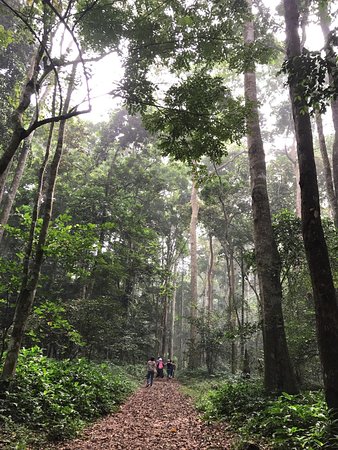
St. Paul's Cathedral
Discover Abidjan's iconic St. Paul's Cathedral: a modern architectural marvel blending faith and Ivorian culture since 1985.
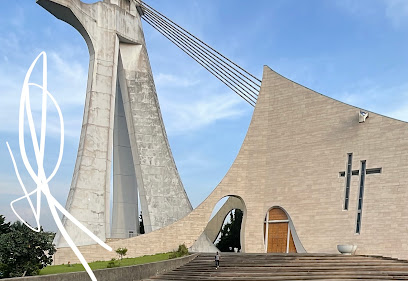
Plateau Mosque
Discover Abidjan's architectural gem, the Plateau Mosque, a modern Islamic landmark in the heart of the city.
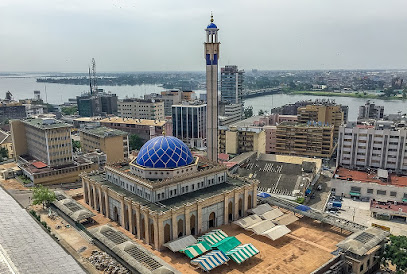
Ibis Styles Abidjan Marcory
A comfortable and convenient hotel in Abidjan's Marcory district, offering modern amenities and easy access to city attractions.
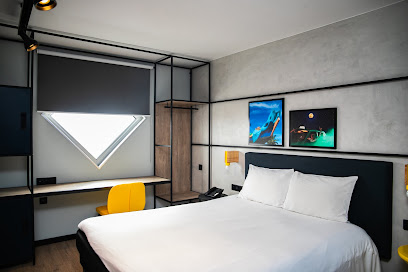
Statue Akwaba
Experience Ivorian hospitality at the Akwaba Statue in Abidjan, a symbol of welcome and cultural pride, located near the international airport.
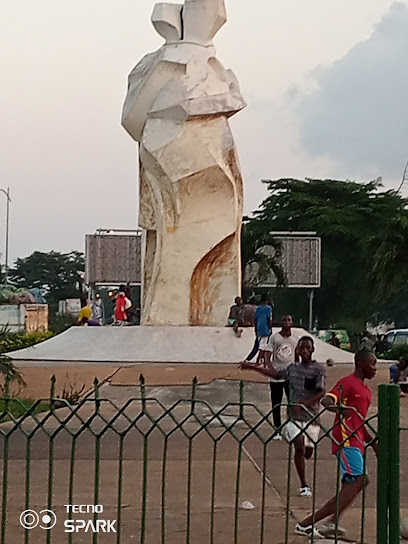
Palais Présidentiel
Discover Abidjan's Palais Présidentiel, an iconic landmark and the official residence of Côte d'Ivoire's President, steeped in history and grandeur.
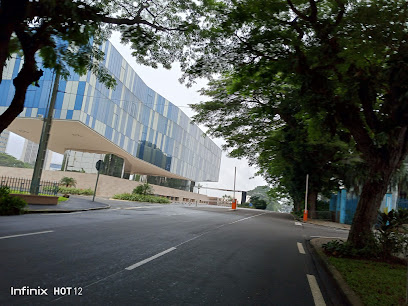
Résidence ECOLOGE
Experience comfort and nature in Abidjan at Résidence ECOLOGE, offering modern suites, a pool, and convenient access to city attractions.
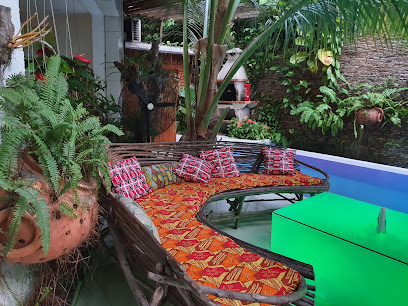
Sanctuaire Marial
Discover the spiritual essence of Abidjan at Sanctuaire Marial, a serene shrine blending tranquility and rich cultural heritage.
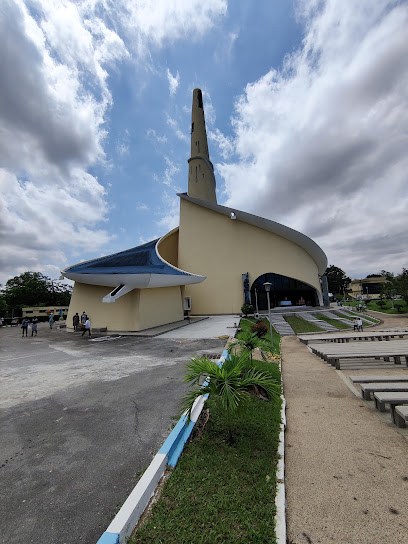
Alizée Club
Experience Abidjan's vibrant nightlife at Alizée Club, a popular night club in Marcory known for its lively atmosphere and diverse music.
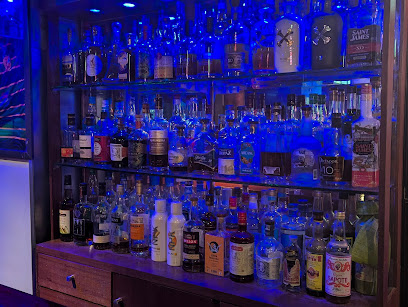
AfricaWorks Abidjan @ Marcory
Dynamic coworking space in Marcory, Abidjan, offering flexible office solutions, high-speed internet, and a collaborative community for professionals.
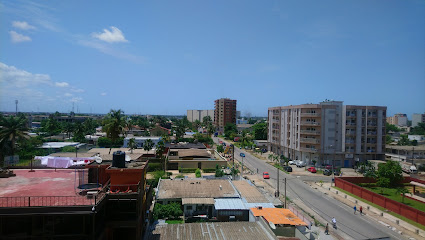
Mosquée Marcory
Discover the architectural beauty and serene atmosphere of Mosquée Marcory, a spiritual center in the heart of Abidjan's Marcory district.
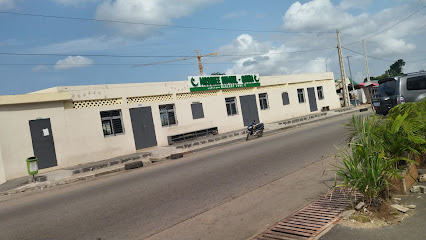
Memorial
Discover Abidjan's Memorial: A serene landmark honoring Côte d'Ivoire's past and cultural heritage in the heart of Cocody.
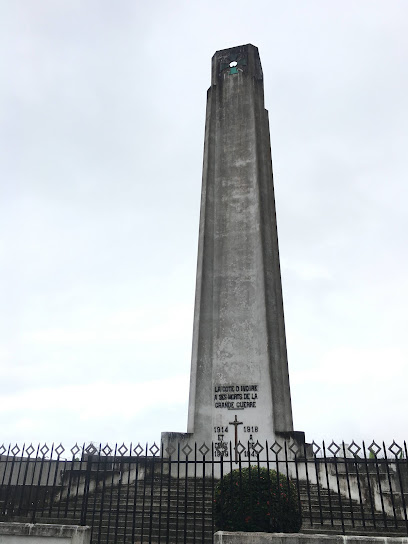
Espace de Prière Derrière Clôture Orange Marcory Cap Sud
Discover a peaceful retreat at Espace de Prière Derrière Clôture Orange Marcory Cap Sud, a welcoming mosque in Abidjan's vibrant Marcory district.
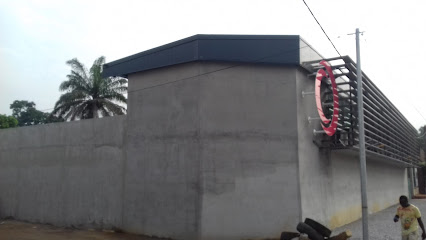
Monument de Mandela
A tribute to Nelson Mandela's legacy of peace and unity in the heart of Abidjan's Plateau district.
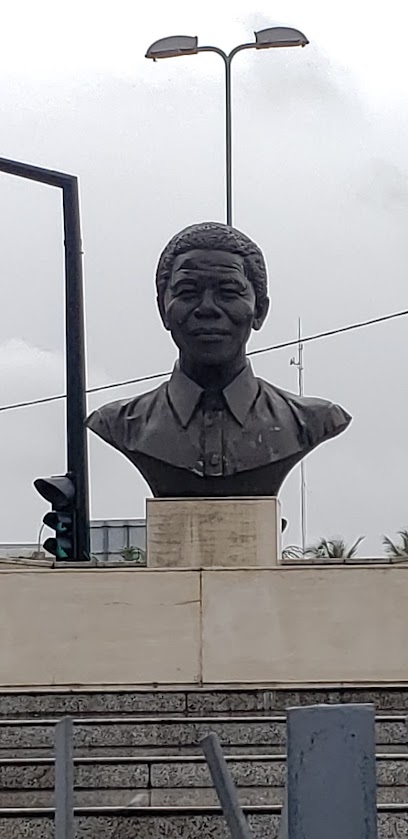
Place De La Republique
Experience the vibrant heart of Abidjan at Place de la Republique, a bustling square blending history, culture, and modern Ivorian life.
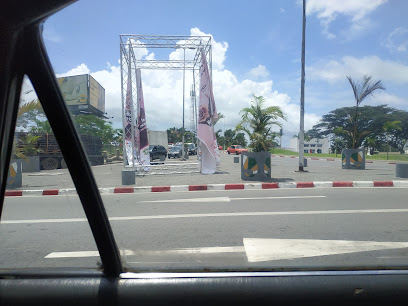
Unmissable attractions to see
St. Paul's Cathedral
Discover Abidjan's iconic St. Paul's Cathedral: a modern architectural marvel with stunning stained glass, mosaics, and panoramic city views.
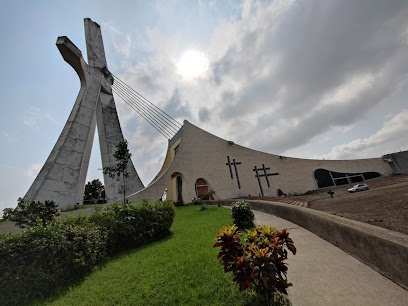
Plateau Mosque
Discover the architectural beauty and spiritual serenity of Plateau Mosque in Abidjan, a cultural treasure in the heart of Côte d'Ivoire.
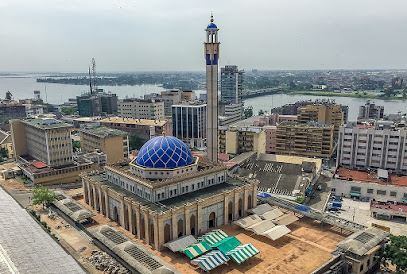
DreamLand
Discover the ultimate indoor playground in Abidjan at DreamLand, where adventure and fun await for children and families alike.
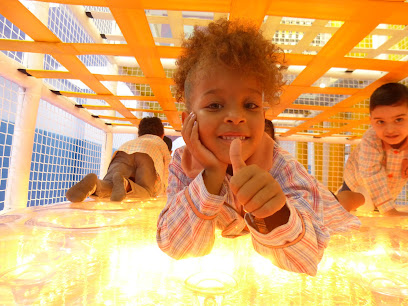
Espace femua
Discover the vibrant culture and artistry of Ivory Coast at Espace Femua, a must-visit attraction in Abidjan.
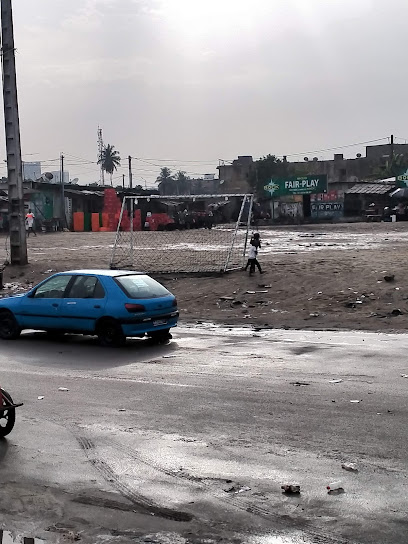
Splash Park Yopougon
Discover family fun at Splash Park Yopougon, the ultimate water adventure in the heart of Abidjan, perfect for all ages.
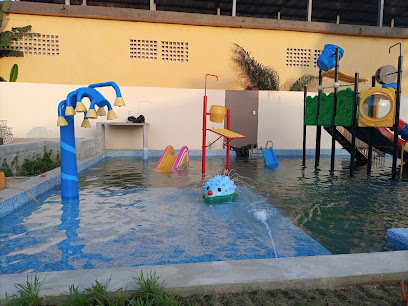
Canal de vridi
Explore Abidjan's Canal de Vridi: a vital waterway connecting the city to the world, rich in culture and economic significance.
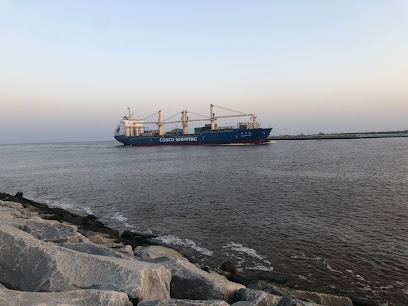
Essential places to dine
Chez Ambroise
Discover authentic Ivorian cuisine at Chez Ambroise in Abidjan – where flavor meets culture in a vibrant dining atmosphere.
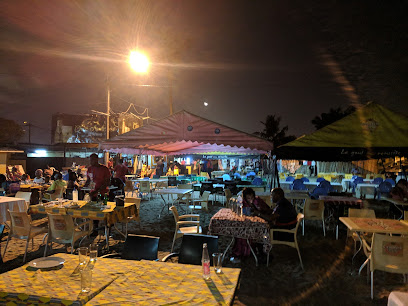
Chez Tantie Alice Marcory
Experience authentic Ivorian cuisine at Chez Tantie Alice in Marcory - where flavor meets hospitality in the heart of Abidjan.
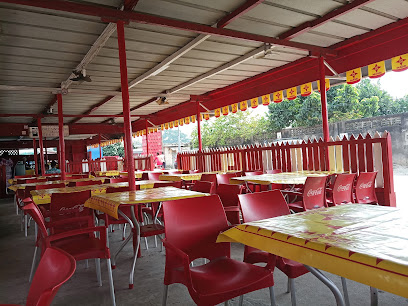
Le Mechoui
Experience the best of Lebanese cuisine at Le Mechoui in Abidjan; where authentic flavors meet inviting ambiance.
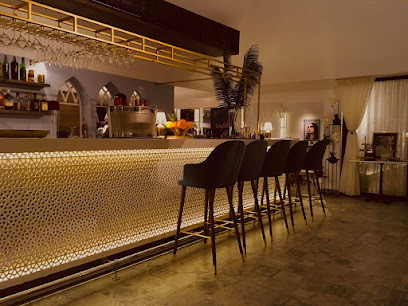
L'EDEN Abidjan | Food Sky Bar
Experience exquisite dining and vibrant nightlife at L'EDEN Abidjan - where culinary art meets breathtaking views.
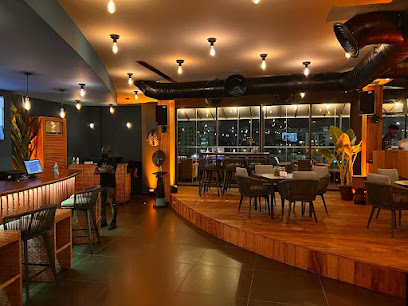
Parenthese
Discover Abidjan's culinary gem at Parenthese - a delightful restaurant and lounge offering exquisite dishes and vibrant nightlife.
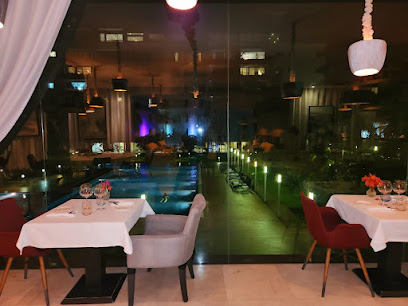
Le Montparnasse Restaurant
Discover the rich flavors of Ivorian cuisine at Le Montparnasse Restaurant in Abidjan—where tradition meets sophistication.
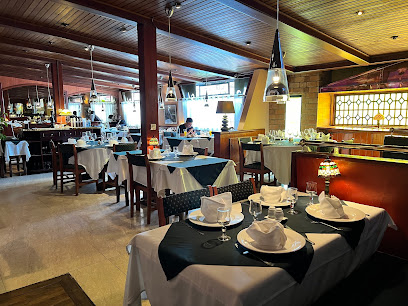
Le Jardin Gourmand
Experience exquisite haute French cuisine at Le Jardin Gourmand in Abidjan – where culinary artistry meets elegance.
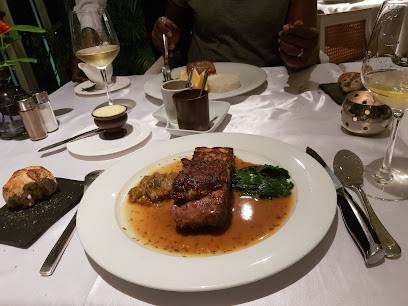
La Pierrade
Experience exquisite French cuisine at La Pierrade in Abidjan's Marcory district, where culinary tradition meets local flavors.
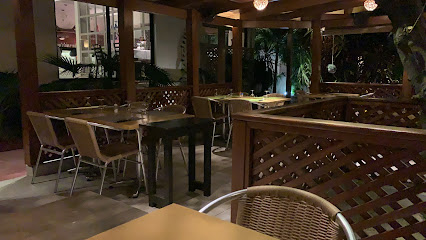
Restaurant Mediterraneo
Experience the taste of Italy in Abidjan at Restaurant Mediterraneo - where every meal is a journey through Mediterranean flavors.
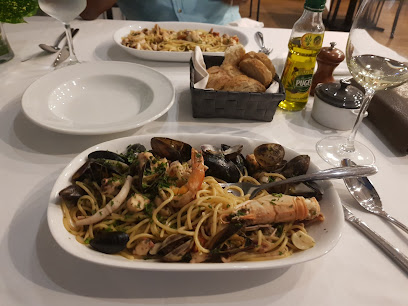
Le Rendez-vous
Discover the flavors of Côte d'Ivoire at Le Rendez-vous – where traditional meets contemporary in an inviting atmosphere.
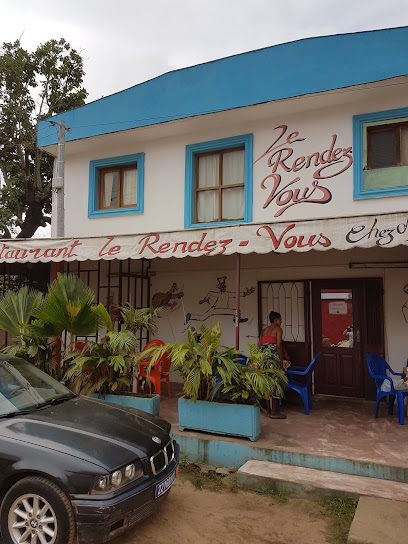
Markets, malls and hidden boutiques
Isaac
Explore Isaac, Abidjan's charming gift shop for unique souvenirs and local crafts that embody the spirit of Ivory Coast.

OPPONG KWADWO BOUTIQUE MARCORY
Discover unique crafts and fashion at OPPONG KWADWO BOUTIQUE MARCORY, a vibrant shopping destination in the heart of Abidjan's Marcory district.
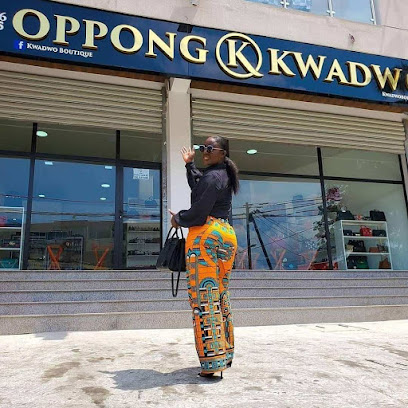
Boutique
Experience the rich culture of cigar smoking at Boutique Cigar Shop in Abidjan, where quality meets a welcoming atmosphere.
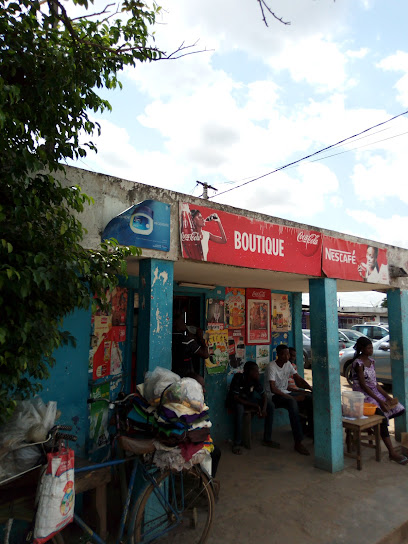
ANAÏS BOUTIQUE
Explore ANAÏS BOUTIQUE in Abidjan for a unique selection of stylish bags that embody elegance and local craftsmanship.
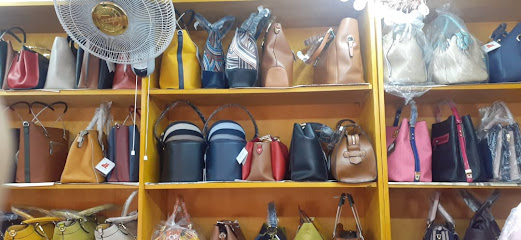
LUXURY BOUTIQUE ABIDJAN
Shop exquisite clothing at Luxury Boutique Abidjan, where local style meets luxury fashion in the heart of the vibrant Marcory district.

Bongo
Discover unique Ivorian crafts and authentic souvenirs at Bongo, the ultimate gift shop in Abidjan, where culture and craftsmanship unite.

PARFOIS
Explore the vibrant world of fashion at PARFOIS in Abidjan, where stylish handbags and accessories await every fashion lover.
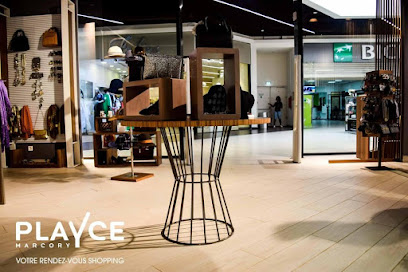
Chicha club
Explore the vibrant culture of Côte d'Ivoire at Chicha Club, a gift shop offering unique souvenirs and local crafts in the heart of Abidjan.

Bonbon au lait Marcory
Explore the vibrant fashion scene of Abidjan at Bonbon au lait Marcory, where local style meets exceptional craftsmanship.
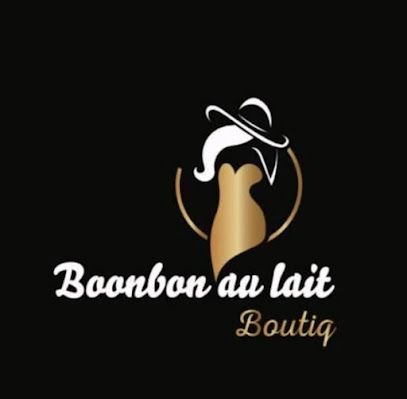
Fortune Star Shop
Discover unique local crafts and fashion at Fortune Star Shop, a charming boutique in the heart of Abidjan's Marcory district.
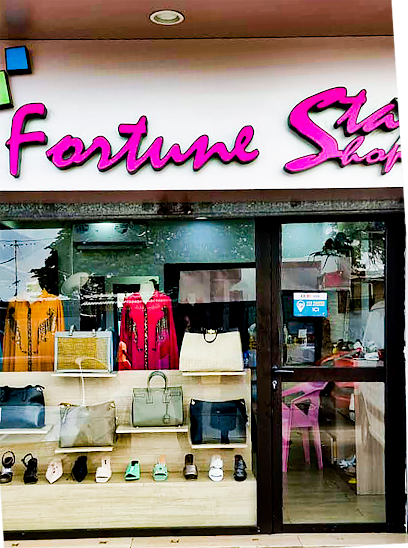
Essential bars & hidden hideouts
L'EDEN Abidjan | Food Sky Bar
Experience the ultimate rooftop dining at L'EDEN Abidjan, where exquisite tapas, refreshing cocktails, and live music create unforgettable nights under the stars.
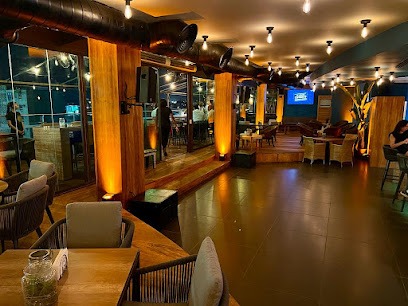
Le bar blanc
Experience the vibrant nightlife of Abidjan at Le Bar Blanc, where culture and entertainment meet in a lively atmosphere.
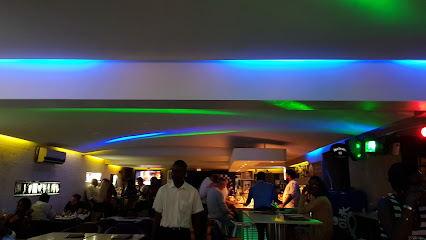
izy bar
Experience the vibrant nightlife at Izy Bar in Abidjan, where refreshing drinks and local culture blend seamlessly for an unforgettable evening.
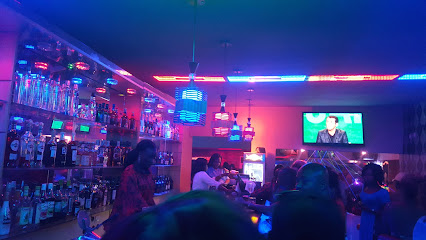
Las Vegas Bar
Dive into a vibrant nightlife experience at Las Vegas Bar, Abidjan's premier destination for music, drinks, and unforgettable memories.
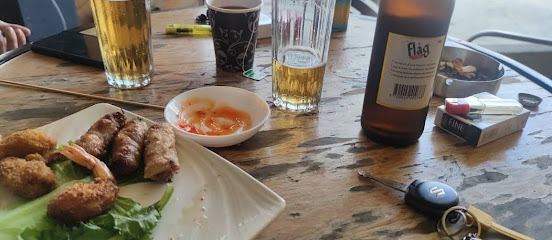
Ok Bar
Discover the vibrant nightlife of Abidjan at Ok Bar, where local culture meets a cozy atmosphere and delicious drinks.
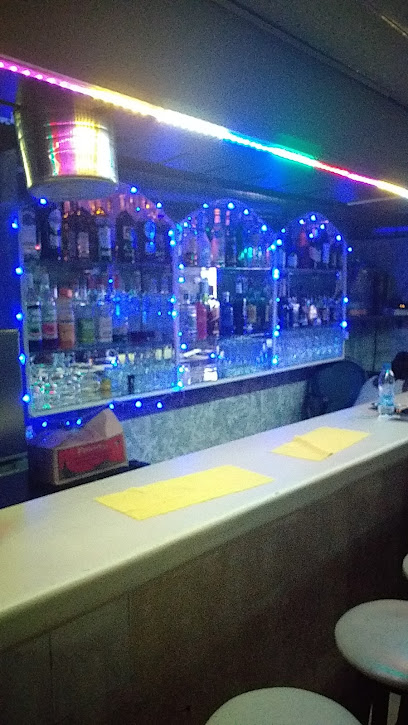
Bar toi et moi zone 4
Experience the vibrant nightlife of Abidjan at Bar Toi Et Moi Zone 4, a delightful bar blending local culture and charm.
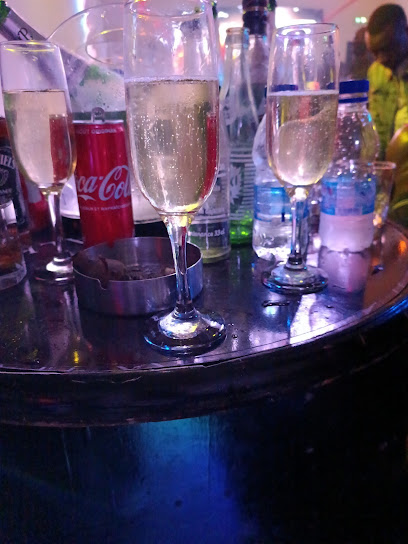
Hypnotic pub
Experience the vibrant nightlife at Hypnotic Pub in Abidjan, where good drinks and great company come together for a memorable evening.
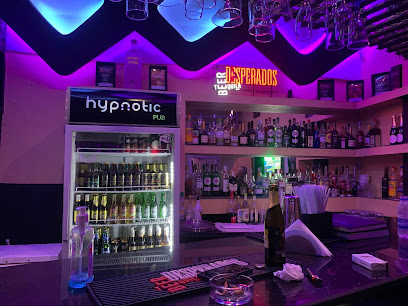
Pari's Pub
Discover the vibrant nightlife at Pari's Pub, a must-visit bar in Abidjan with a lively atmosphere and a fantastic drink selection.
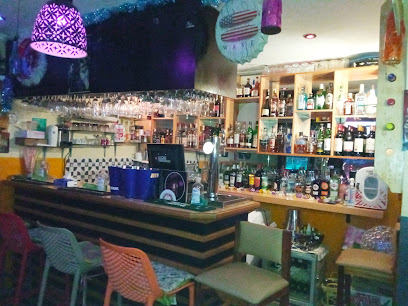
Monument bar Marcory
Discover the lively Monument Bar in Marcory, Abidjan - a perfect blend of drinks, music, and local culture in a vibrant atmosphere.

Lounge zone 4
Discover the vibrant nightlife of Abidjan at Lounge Zone 4, a chic bar in the heart of Marcory offering a unique social experience.

Local Phrases
-
- HelloBonjour
[bon-zhoor] - GoodbyeAu revoir
[oh rev-wah] - YesOui
[wee] - NoNon
[nohn] - Please/You're welcomeS'il vous plaît/Je vous en prie
[seel voo pleh/zheh vooz ahn pree] - Thank youMerci
[mehr-see] - Excuse me/SorryExcusez-moi/Désolé
[ex-kew-zay mwa/deh-zoh-lay] - How are you?Comment ça va?
[koh-mohn sah vah] - Fine. And you?Bien. Et vous?
[byen. ay voo] - Do you speak English?Parlez-vous anglais?
[par-lay voo ahn-glai] - I don't understandJe ne comprends pas
[zheh nuh kohm-prahn pah]
- HelloBonjour
-
- I'd like to see the menu, pleaseJe voudrais voir le menu, s'il vous plaît
[zheh voo-dreh vwahr luh meh-noo, seel voo pleh] - I don't eat meatJe ne mange pas de viande
[zheh nuh mahnj pah duh vyand] - Cheers!Santé!
[sahn-tay] - I would like to pay, pleaseJe voudrais payer, s'il vous plaît
[zheh voo-dreh pay-ay, seel voo pleh]
- I'd like to see the menu, pleaseJe voudrais voir le menu, s'il vous plaît
-
- Help!Au secours!
[oh seh-coor] - Go away!Allez-vous en!
[ah-lay vooz ahn] - Call the Police!Appelez la police!
[ah-peh-lay lah poh-lees] - Call a doctor!Appelez un médecin!
[ah-peh-lay uh may-deh-sahn] - I'm lostJe suis perdu
[zheh swee pair-doo] - I'm illJe suis malade
[zhe swee mah-lahd]
- Help!Au secours!
-
- I'd like to buy...Je voudrais acheter...
[zheh voo-dreh ah-shet-ay] - I'm just lookingJe regarde juste
[zheh ruh-gahrd zhuhst] - How much is it?Combien ça coûte?
[kohm-byen sah koot] - That's too expensiveC'est trop cher
[say troh shair] - Can you lower the price?Pouvez-vous baisser le prix?
[poo-veh voo bay-say luh pree]
- I'd like to buy...Je voudrais acheter...
-
- What time is it?Quelle heure est-il?
[kell ur ay-teel] - It's one o'clockIl est une heure
[eel ay oon ur] - Half past (10)Dix heures et demie
[dees ur ay duh-mee] - MorningMatin
[mah-tan] - AfternoonAprès-midi
[ah-pray mee-dee] - EveningSoir
[swar] - YesterdayHier
[yair] - TodayAujourd'hui
[oh-zhur-dwee] - TomorrowDemain
[duh-mahn] - 1Un
[uhn] - 2Deux
[duh] - 3Trois
[twah] - 4Quatre
[kah-truh] - 5Cinq
[sank] - 6Six
[sees] - 7Sept
[sept] - 8Huit
[wheat] - 9Neuf
[nuf] - 10Dix
[dees]
- What time is it?Quelle heure est-il?
-
- Where's a/the...?Où se trouve un/le...?
[oo suh troov uh/luh] - What's the address?Quelle est l'adresse?
[kell ay lah-dress] - Can you show me (on the map)?Pouvez-vous me montrer (sur la carte)?
[poo-veh voo muh mohn-tray (soor lah kart)] - When's the next (bus)?Quand est le prochain (bus)?
[kond ay luh proh-shan (boos)] - A ticket (to ....)Un billet (pour ...)
[uhn bee-yay (poor)]
- Where's a/the...?Où se trouve un/le...?
History of Marcory
-
Marcory's history is rooted in the early expansion of Abidjan as a colonial port city in the late 19th century. Initially a small settlement, it began to grow significantly with the arrival of the French, who established administrative and commercial centers along the coast. The neighbourhood started to take shape as the city of Abidjan transformed into a key economic hub in Côte d'Ivoire.
-
Following Côte d'Ivoire's independence in 1960, Marcory experienced rapid urbanization and development. The government promoted infrastructural projects that included the establishment of residential areas, schools, and health facilities, contributing to the neighbourhood's transformation into a vibrant urban center. This growth was indicative of the broader expansion of Abidjan during this period.
-
Marcory has evolved into a cultural melting pot, reflecting the diverse demographics of Abidjan. It is home to various ethnic groups, including Akan, Krou, and Mandé peoples, and showcases a rich tapestry of traditions, languages, and culinary practices. The vibrant market scene and local festivals celebrate this diversity, making Marcory an essential part of Abidjan's socio-cultural landscape.
-
In recent decades, Marcory has emerged as a significant economic hub within Abidjan. The neighbourhood hosts a range of businesses, from small local shops to larger commercial entities, and is known for its bustling markets such as the Marcory Market. This economic activity has attracted a steady flow of residents and businesses, further solidifying its role in the region's economy.
-
Like many urban neighborhoods in Abidjan, Marcory faces challenges such as urban congestion, infrastructure strain, and socio-economic disparities. However, community initiatives and local governance efforts aim to address these issues, showcasing the resilience and adaptability of its residents. The neighbourhood continues to evolve, maintaining its significance in the ever-changing landscape of Abidjan.
Marcory Essentials
-
Marcory is easily accessible from other neighborhoods in Abidjan. The Félix Houphouët-Boigny International Airport is located just a short drive away, making it convenient for international travelers. To reach Marcory from areas like Plateau or Cocody, you can take a taxi or use a shared minibus (gbaka), which operates frequently. The journey usually takes around 15 to 30 minutes, depending on traffic.
-
In Marcory, the most common mode of transport is the taxi, which can be flagged down on the street or booked via local apps. The gbaka system is also widely used, providing an affordable means to navigate the area. Bicycles can be rented from local shops, and walking is a good option in certain areas, especially to enjoy the local markets and street food.
-
Marcory is generally safe for tourists, but it is advisable to remain vigilant, especially in crowded areas. Certain parts, particularly near the markets after dark, can be riskier and are best avoided. It’s recommended to stay in well-lit areas at night and keep valuables close. Avoid displaying expensive items and be cautious when using your phone in public.
-
In case of an emergency, you can contact the local police at 17. For medical emergencies, dial 21 25 25 25 for assistance. It’s advisable to have travel insurance that covers medical issues. Pharmacies are available throughout Marcory for minor health concerns, and larger hospitals can be found in nearby neighborhoods.
-
Fashion: Do wear lightweight and modest clothing, especially in public areas. Don't wear revealing outfits or clothing that may be deemed disrespectful. Religion: Do respect local customs, particularly in religious sites; removing shoes is often required. Public Transport: Do be polite and give up your seat to the elderly. Don’t engage in loud conversations or use your phone excessively. Greetings: Do greet locals with a smile and a handshake. Avoid being overly familiar with strangers. Eating & Drinking: Do try local dishes and accept food offers; it’s a sign of hospitality. Don’t eat in public transport, as it can be frowned upon.
-
To experience Marcory like a local, visit the bustling markets such as the Marché de Marcory where you can find fresh produce, spices, and local crafts. Engage with vendors, as they are often eager to share their stories. Try the street food, particularly attiéké, a local cassava dish. Learning a few phrases in French will enhance your interactions with locals, who appreciate when tourists make an effort to communicate.
Trending Landmarks in Marcory
-
Parc National du Banco
-
St. Paul's Cathedral
-
Plateau Mosque
-
Ibis Styles Abidjan Marcory
-
Statue Akwaba
-
Palais Présidentiel
-
Résidence ECOLOGE
-
Sanctuaire Marial
-
Alizée Club
-
AfricaWorks Abidjan @ Marcory
-
Mosquée Marcory
-
Memorial
-
Espace de Prière Derrière Clôture Orange Marcory Cap Sud
-
Monument de Mandela
-
Place De La Republique
Nearby Cities to Marcory
-
Things To Do in Yamoussoukro
-
Things To Do in Sassandra
-
Things To Do in Takoradi
-
Things To Do in Sekondi-Takoradi
-
Things To Do in Sunyani
-
Things To Do in San-Pédro
-
Things To Do in Cape Coast
-
Things To Do in Kumasi
-
Things To Do in Daloa
-
Things To Do in Koforidua
-
Things To Do in Accra
-
Things To Do in Ho
-
Things To Do in Kpalimé
-
Things To Do in Wa
-
Things To Do in Sanniquellie



